GENERAL
Discover the Cereal Aisle: A Crunchy World of Choices

When you walk into a grocery store, one section bursts with color, nostalgia, and endless options—the cereal aisle. This vibrant space is more than just a row of boxes; it’s a reflection of our eating habits, health trends, and even our childhood memories. Whether you’re after a sugary treat or a high-fiber breakfast, the cereal aisle offers something for everyone. With brands competing to win your attention, the cereal aisle is an arena of marketing, nutrition, and taste innovation.
The Evolution of the Cereal’s Aisle
In the early 20th century, the aisle of cereals was a modest part of the grocery store, mostly filled with basic cornflakes and oat-based cereals. As consumer demand grew for variety, the aisle transformed dramatically. Today, it features a broad range of choices—gluten-free, organic, protein-packed, low-sugar, and even keto-friendly cereals.
Food companies now tailor cereals to specific demographics: cartoon-themed boxes for children, heart-healthy whole grains for adults, and fitness-friendly blends for athletes. The aisle of cereals has evolved into a one-stop destination for everyone’s morning needs.
Nutritional Powerhouses and Sugar Bombs
Walking down the aisle of cereals reveals a spectrum of nutritional values. While some cereals are rich in vitamins, minerals, and whole grains, others contain excessive sugar and artificial additives. Nutrition-conscious consumers now scrutinize labels, comparing fiber content, grams of sugar, and protein amounts.
Many cereals now boast added ingredients like flax seeds, chia, or quinoa. These additions offer more than just a nutritional boost—they’re also marketing tools to stand out in the competitive aisle of cereals.
Marketing in the Cereal’s Aisle
Packaging is key in the aisle of cereals. Bright colors, mascots, limited-time flavors, and eye-catching fonts compete for your attention. Kids are drawn to colorful characters and games on boxes, while adults prefer sleek designs that promote health benefits.
Every square inch of cereal box real estate is optimized. You’ll find QR codes for interactive games, bold claims like “gluten-free,” “fortified with iron,” or “supports heart health,” and suggested recipes. Brands capitalize on impulse buying, placing cereals at eye-level according to the target demographic—lower shelves for kids, middle shelves for parents.
Shopping Psychology: How You Choose in the Cereal’s Aisle
Consumer behavior studies show that the aisle of cereals affects how we make purchasing decisions. From label positioning to flavor descriptions, every aspect is calculated. People tend to spend more time in this aisle than in any other grocery section. Visuals, scent (in sample areas), and even music influence decisions.
Brand loyalty also plays a big role. Many people stick to cereals they grew up with, despite newer, healthier options. Still, with increasing health awareness, shoppers are gradually branching out, trying options like granola, muesli, or oat clusters.
Healthy Options in the Cereal Aisle
As dietary awareness rises, health-conscious cereals are gaining shelf space. Look for:
- Whole grain cereals: They retain the bran and germ, offering fiber, iron, and B vitamins.
- Low-sugar options: Some brands now offer cereals with 3 grams of sugar or less per serving.
- High-protein cereals: Often enriched with plant-based proteins like pea protein or soy.
- Gluten-free cereals: Made from rice, corn, or quinoa for those with gluten intolerance.
These healthier cereals typically come with a slightly higher price tag but offer long-term value in wellness.
Kid-Friendly Cereals vs Adult Choices
The aisle of cereals caters distinctly to two major audiences—children and adults. Kid-friendly options are often sugary, colorful, and fun-shaped. These cereals frequently include prizes or collectible tokens. Conversely, adult-focused cereals emphasize nutritional benefits like fiber, antioxidants, and heart health.
Some parents now seek middle-ground cereals—fun but healthy. Several brands have responded by creating kid-friendly cereals with lower sugar and added fiber.
Global Trends in the Cereal Aisle
The cereal aisle differs from country to country. There are many delicious alternatives available in the United States. On the other hand, there are more muesli and grain mixtures in European aisles. Savory breakfast alternatives and cereals made from rice predominate in Asian markets.
Global health movements are also influencing the cereal aisle. Trends like veganism, intermittent fasting, and clean eating have pushed brands to innovate. Expect to see more plant-based, non-GMO, and clean-label cereals worldwide.
Sustainability in the Cereal Aisle
Today’s consumers care about more than just taste—they want ethical products. Brands are adapting by introducing sustainable packaging, sourcing non-GMO and organic ingredients, and reducing their carbon footprint. The aisle of cereals now features products labeled “Fair Trade,” “Organic,” and “Eco-Friendly Packaging.”
Plastic bags are being replaced by compostable liners or recyclable paper. Consumers looking to support the planet can now choose cereal options that align with their values.
Comparison Chart: Choosing the Right Cereal for Your Needs
| Feature | Kid-Friendly Cereals | Health-Focused Cereals | Budget Cereals | Gourmet/Niche Cereals |
| Sugar Content | High (8-15g) | Low (0-5g) | Moderate (5-10g) | Varies |
| Fiber Content | Low (1-2g) | High (5-10g) | Moderate (2-4g) | High (5-9g) |
| Price Range | $$ | $$$ | $ | $$$$ |
| Packaging Appeal | Colorful, Characters | Minimal, Clean | Generic | Artistic, Minimalist |
| Availability | Widely available | Growing rapidly | Universally available | Select stores or online |
| Main Audience | Children | Adults, Athletes | General Consumers | Health Enthusiasts |
Innovations in the Cereal Aisle
With advancing food science, the aisle of cereals is becoming smarter. Some innovations include:
- Functional cereals: Enhanced with probiotics for gut health.
- Mood-boosting cereals: Contain adaptogens like ashwagandha.
- Collagen cereals: Targeted at skincare-conscious consumers.
- AI-personalized cereals: Online brands use AI to create cereal blends based on dietary preferences.
These advances make the aisle of cereals not just about breakfast—but wellness.
Challenges Faced in the Cereal Aisle
Despite its popularity, the aisle of cereals faces challenges:
- Label Misleading: Terms like “natural” and “whole grain” can be used loosely.
- Sugar Reduction Struggles: It’s tough to maintain taste while reducing sugar.
- Allergen Management: With more dietary restrictions, manufacturing becomes complex.
- Saturated Market: Too many options can confuse consumers instead of helping them.
Companies are now working toward transparency and better labeling standards to regain consumer trust.
The Future of the Cereal Aisle
Technology will continue reshaping the aisle of cereals Smart shelves may offer digital labels that show health ratings, allergens, and user reviews. Augmented reality (AR) apps might let you scan a box and watch a video about its ingredients.
Subscription-based cereal services are also on the rise, allowing consumers to receive curated boxes monthly. These developments show that the aisle of cereals isn’t going anywhere—it’s evolving to match lifestyle shifts and technological growth.
Conclusion
The cereal aisle is more than just a breakfast stop. It’s a mix of nutrition, marketing, culture, and innovation. Whether you’re hunting for nostalgic flavors, healthier choices, or the latest trend, the aisle of cereals has it all. Understanding how to navigate it ensures better choices for your taste buds and your health. With evolving options, staying informed about ingredients and labels is more important than ever. Next time you walk into a grocery store, give the aisle of cerealsthe attention it deserves—it might just surprise you.
Read more:
FAQ’s:
What are the healthiest options in the cereal aisle?
Whole grain cereals with low sugar and high fiber, such as bran flakes or unsweetened granola, are some of the healthiest options.
Why are aisle of cereals so colorful and crowded?
Brands use bright packaging and creative displays to grab consumer attention and influence purchasing decisions, especially for kids.
How can I choose a cereal that’s good for weight loss?
Look for cereals high in protein and fiber, with minimal added sugar and simple ingredients.
Are gluten-free cereals available in the aisle of cereals?
Yes, many brands now offer gluten-free options made from rice, corn, or quinoa.
What should I avoid when picking cereal?
Avoid cereals high in sugar, artificial flavors, and hydrogenated oils for a healthier choice.
How do cereal aisle trends differ by country?
In the U.S., sugary cereals dominate. In Europe, healthier blends like muesli are popular, while Asia features rice-based or savory options.
GENERAL
Myloxarindor Qylendrithal: Unlocking the Meaning Behind the Mystery
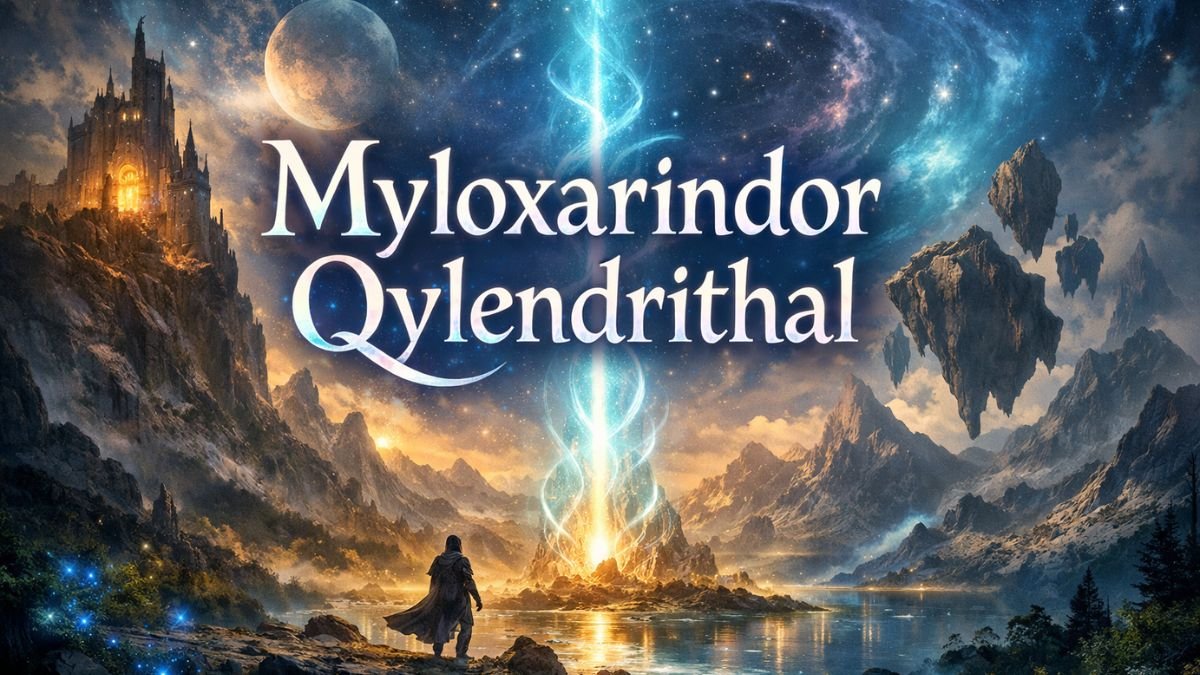
Myloxarindor qylendrithal is a term that immediately sparks curiosity. It sounds rare, complex, and almost mythical. Whether you encountered it in a creative discussion, a fictional setting, or as part of a conceptual idea, this phrase carries a sense of depth and imagination. In this article, we explore what myloxarindor qylendrithal represents, its possible origins, and why it is gaining attention in creative and digital spaces.
The Concept Behind Myloxarindor Qylendrithal
At its core, myloxarindor qylendrithal appears to symbolize something abstract and imaginative. The structure of the phrase suggests fantasy-inspired language, possibly rooted in world-building or speculative fiction. Many unique terms like this are created to represent powerful forces, hidden knowledge, or advanced civilizations in storytelling. The layered sound and rhythm give it a mystical tone that feels intentional and artistic. In creative writing and branding, such distinctive phrases help build identity and intrigue. Myloxarindor qylendrithal stands out because it feels both ancient and futuristic at the same time.
Possible Origins and Linguistic Style
The linguistic style of myloxarindor qylendrithal hints at constructed language patterns often used in fantasy literature and science fiction. Writers frequently develop fictional languages to add realism and depth to imaginary worlds. The phonetic structure resembles high fantasy naming conventions, where syllables are extended and dramatic. This technique enhances immersion and emotional impact. It may also reflect elements of symbolic naming, where the sound of a word carries as much weight as its meaning. As a coined term, myloxarindor qylendrithal demonstrates how language can be shaped creatively to evoke mystery and power.
Creative and Digital Applications
In modern digital culture, unique phrases like myloxarindor qylendrithal can be used for branding, storytelling, gaming, or artistic projects. A distinctive name gives creators a competitive edge by ensuring originality and memorability. For online communities, fantasy games, or fictional universes, such a term can represent a kingdom, artifact, philosophy, or energy source. It may also serve as a symbolic concept in digital art or immersive narratives. Because it is uncommon and highly original, it holds strong SEO potential as well. Unique keywords often rank more easily when paired with meaningful content and strategic optimization.
Symbolism and Interpretative Meaning
The meaning of myloxarindor qylendrithal can be interpreted in many ways depending on context. It might symbolize transformation, hidden wisdom, or a powerful realm beyond ordinary perception. The layered sound of the phrase gives it an almost ceremonial feel, suggesting importance and depth. In speculative storytelling, names like this often represent ancient forces or lost civilizations. Symbolic language allows readers to project their own meaning onto the term, making it flexible and imaginative. This openness adds emotional resonance and creative freedom.
Why Unique Terms Like This Matter
In an era dominated by repetitive content, originality is valuable. Myloxarindor qylendrithal demonstrates the power of creative language in building strong identity and differentiation. Unique terminology strengthens brand presence, supports world-building, and enhances memorability. It encourages deeper engagement because people naturally want to understand what unfamiliar words mean. From a search engine perspective, distinctive phrases reduce competition and increase visibility. More importantly, they inspire creativity and intellectual exploration.
Conclusion
Myloxarindor qylendrithal is more than just an unusual phrase. It represents imagination, linguistic creativity, and the power of unique expression. Whether used in storytelling, branding, or conceptual design, it carries depth and intrigue. In a crowded digital world, originality stands out—and this term embodies that principle perfectly. By embracing creative language like myloxarindor qylendrithal, writers and creators open doors to new ideas and limitless possibilities.
FAQs
What is myloxarindor qylendrithal?
It is a unique, imaginative term often interpreted as a symbolic or fantasy-inspired concept.
Is myloxarindor qylendrithal a real word?
No, it appears to be a coined or constructed phrase rather than a dictionary term.
Where can myloxarindor qylendrithal be used?
It can be used in creative writing, gaming, branding, or digital storytelling projects.
Why are unique phrases like this important?
They help create originality, improve memorability, and strengthen identity.
Does myloxarindor qylendrithal have a fixed meaning?
No, its meaning depends on context and creative interpretation.
GENERAL
American Lifestyles: A Closer Look at Culture, Work, and Everyday Living

American lifestyles are often described as dynamic, diverse, and constantly evolving. From busy urban centers to quiet rural towns, life in the United States reflects a blend of tradition and modern ambition. The country’s size, cultural diversity, and economic opportunities shape how people live, work, and spend their free time. While no single definition fits everyone, certain patterns stand out in American lifestyles, including a focus on independence, career growth, innovation, and personal freedom. Understanding these elements helps explain how Americans approach daily living and long-term goals.
Cultural Diversity and Identity
One of the strongest features of American lifestyles is cultural diversity. The United States has long been shaped by immigration, bringing together people from different backgrounds, languages, and traditions. This multicultural environment influences food, music, fashion, holidays, and even communication styles. Cities like New York City and Los Angeles are prime examples of cultural blending, where communities celebrate both American traditions and their heritage.
This diversity encourages openness and creativity in everyday life. Families may celebrate Thanksgiving while also observing cultural festivals tied to their ancestry. As a result, American lifestyles often combine global influences with local customs. Identity becomes personal rather than fixed, allowing individuals to express themselves freely through lifestyle choices, careers, and social circles.
Work Culture and Career Focus
Work plays a central role in shaping American lifestyles. Many Americans prioritize career growth, entrepreneurship, and professional achievement. The idea of the “American Dream” still influences how people view success, often linking it to financial stability, homeownership, and upward mobility. Long working hours and competitive industries reflect a strong work ethic that values productivity and ambition.
At the same time, modern shifts have changed workplace culture. Remote work, digital entrepreneurship, and the gig economy now allow more flexibility. Professionals in cities like San Francisco often work in technology-driven environments, while others pursue freelance careers from home. This blend of hard work and innovation continues to shape American lifestyles, balancing ambition with new approaches to work-life balance.
Family Life and Social Values
Family structures in the United States vary widely, reflecting social change and personal choice. Nuclear families, single-parent households, blended families, and same-sex couples all contribute to the country’s social landscape. Respect for individual decisions is a core part of American lifestyles, giving people the freedom to define what family means to them.
Community involvement also plays an important role. School events, neighborhood gatherings, and volunteer work help build social connections. While independence is valued, Americans often support local causes and charities. This balance between personal freedom and community engagement defines many aspects of social life, creating both private space and shared responsibility.
Urban vs. Suburban and Rural Living
Geography significantly shapes American lifestyles. Urban living in cities like Chicago offers fast-paced environments, diverse job markets, and vibrant nightlife. Residents often rely on public transportation and live in apartments or condominiums close to work and entertainment hubs. City life emphasizes convenience and cultural access.
In contrast, suburban areas focus on family-friendly neighborhoods, larger homes, and quieter surroundings. Rural communities offer even more space, often centered around agriculture or small businesses. These differences show how lifestyle choices depend on personal priorities such as career goals, cost of living, and preferred pace of life. Each setting reflects a different version of American living.
Food, Entertainment, and Leisure
Food culture highlights the variety found in American lifestyles. From fast food chains to farm-to-table restaurants, eating habits range widely. International cuisines thrive alongside classic American dishes, showing the impact of globalization. Dining out, food delivery apps, and social gatherings centered around meals are common parts of daily life.
Entertainment also shapes leisure time. Sporting events, music festivals, streaming platforms, and outdoor recreation offer countless options. The influence of major entertainment hubs like Hollywood has made American media globally recognizable. Whether hiking in national parks or attending concerts, Americans value recreation as a way to recharge and connect socially.
Technology and Modern Living
Technology deeply influences modern American lifestyles. Smartphones, social media, and e-commerce platforms shape communication and shopping habits. Digital payments, online education, and remote healthcare services have become normal parts of daily routines. Innovation drives convenience and efficiency in both personal and professional life.
The rapid adoption of new technologies reflects a forward-thinking mindset. Many households rely on smart home devices, streaming services, and digital work tools. This tech-driven culture supports entrepreneurship and global connectivity, making American lifestyles adaptable and future-focused. While technology brings challenges such as screen time and privacy concerns, it remains central to how people live today.
Conclusion
American lifestyles cannot be defined by a single description. They are shaped by diversity, ambition, innovation, and personal freedom. From cultural traditions and career goals to family values and technological advancement, daily life in the United States reflects constant change. Urban, suburban, and rural communities all contribute to the broader picture of American living. By understanding these elements, we see that American lifestyles are less about uniformity and more about choice, opportunity, and self-expression in a fast-moving world.
FAQs
What are American lifestyles known for?
American lifestyles are known for diversity, independence, career focus, and a strong emphasis on personal freedom and innovation.
How does culture influence American lifestyles?
Cultural diversity shapes food, traditions, social values, and identity, creating a blend of global and local influences.
Is work important in American lifestyles?
Yes, work and career growth are major priorities, often connected to financial stability and personal success.
What role does technology play in daily life?
Technology supports communication, remote work, entertainment, and online services, making life more connected and efficient.
Do all Americans live the same way?
No, lifestyles vary widely depending on location, culture, income, and personal choices, reflecting the country’s diversity.
GENERAL
Balabusta Magazine: Where Culture, Creativity, and Community Meet
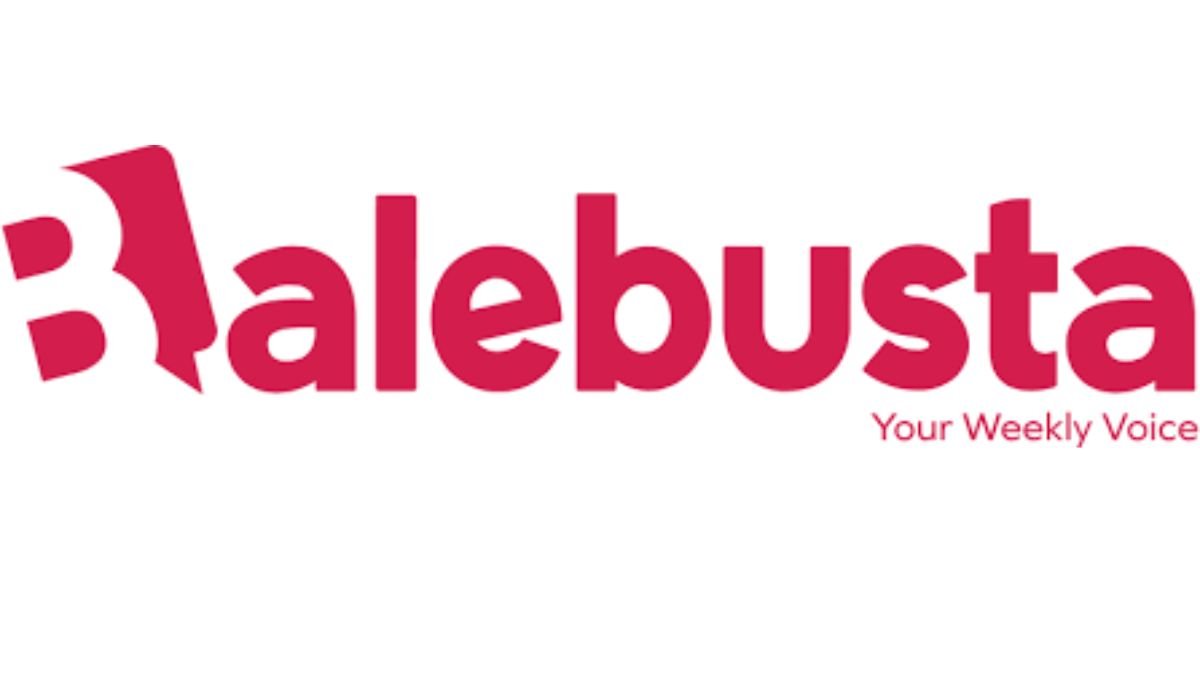
The Balabusta Magazine is more than just a publication; it’s a celebration of identity, heritage, and modern living. With a fresh voice and thoughtful storytelling, the magazine connects readers to culture, food, art, and strong community values. Whether you are passionate about meaningful journalism or simply love discovering inspiring stories, this lifestyle magazine offers depth without feeling heavy. It blends tradition with contemporary insight in a way that feels warm, intelligent, and refreshingly authentic.
The Meaning Behind The Balabusta Magazine
The word “balabusta” traditionally refers to a capable, strong, and resourceful woman who manages life with grace and determination. The Balabusta Magazine embraces that spirit and turns it into a powerful editorial identity. It focuses on empowered living, cultural pride, and thoughtful storytelling that resonates with modern readers. Instead of chasing trends, the magazine highlights timeless values such as family, resilience, creativity, and leadership.
Through its name and mission, the publication honors heritage while encouraging personal growth and innovation. It stands as a symbol of confidence and community strength. Readers feel represented and understood, which is why the magazine continues to build a loyal and engaged audience.
Editorial Focus and Content Style
The Balabusta Magazine covers a wide range of lifestyle topics, including food culture, family traditions, wellness, entrepreneurship, and creative expression. Its content feels carefully curated rather than mass-produced. Articles are written in a warm yet professional tone, making complex subjects easy to understand without oversimplifying them.
One of the publication’s strengths lies in its narrative journalism approach. Instead of quick summaries, it dives into personal stories, cultural insights, and meaningful conversations. Readers are not just consuming content; they are connecting with lived experiences. This storytelling style gives the magazine depth and emotional resonance.
Celebrating Food, Tradition, and Modern Living
Food plays a central role in The Balabusta Magazine, reflecting how cuisine connects generations and preserves cultural identity. Recipes are not just instructions; they are stories of heritage, memory, and family traditions. This focus on culinary storytelling adds authenticity and warmth to the publication.
At the same time, the magazine explores modern lifestyle trends, sustainable living, mindful wellness, and creative entrepreneurship. It balances nostalgia with innovation, showing readers how to honor their roots while embracing change. This unique blend makes the content relatable to both older and younger audiences.
Community, Empowerment, and Representation
A key reason why The Balabusta Magazine stands out in the crowded media landscape is its strong sense of community. It highlights voices that are often overlooked and gives space to diverse perspectives. Interviews with creators, leaders, and everyday changemakers help readers feel inspired and connected.
The magazine promotes empowerment without being overly dramatic or cliché. Its approach is subtle yet impactful, encouraging readers to take pride in their identity and pursue meaningful goals. By focusing on representation and inclusivity, it builds trust and long-term loyalty among its audience.
Why The Balabusta Magazine Stands Out Online
In today’s digital publishing world, many lifestyle platforms rely heavily on fast content and viral trends. The Balabusta Magazine takes a different path by prioritizing quality over quantity. Its long-form articles, rich storytelling, and culturally grounded themes provide real value rather than surface-level entertainment.
From an SEO perspective, the magazine integrates relevant topics such as cultural lifestyle, empowered women, food heritage, and modern community living. It maintains a natural flow of keywords without sounding forced or repetitive. This strategic yet organic approach helps it rank well while keeping the reading experience smooth and enjoyable.
Conclusion
The Balabusta Magazine is a powerful example of how modern publishing can honor tradition while embracing progress. With its focus on culture, food, empowerment, and authentic storytelling, it creates a meaningful space for readers seeking depth and connection. The publication stands out not because it shouts the loudest, but because it speaks with clarity and heart.
For anyone looking for a lifestyle magazine that feels intelligent, warm, and genuinely inspiring, The Balabusta Magazine delivers substance without sacrificing style. It proves that strong storytelling and cultural pride can thrive beautifully in the digital age.
FAQs
What is The Balabusta Magazine?
The Balabusta Magazine is a lifestyle publication that celebrates culture, food, community, and empowered living through meaningful storytelling.
What type of content does The Balabusta Magazine publish?
It covers topics such as food heritage, family traditions, wellness, entrepreneurship, and cultural identity.
Who is The Balabusta Magazine for?
The magazine is designed for readers who value culture, authenticity, strong community connections, and modern lifestyle insights.
Is The Balabusta Magazine focused on women’s empowerment?
Yes, empowerment is a core theme, inspired by the meaning of “balabusta,” which represents strength, capability, and leadership.
Why is The Balabusta Magazine unique?
Its blend of cultural storytelling, modern lifestyle content, and community-driven journalism makes it stand out from trend-focused media platforms.
-
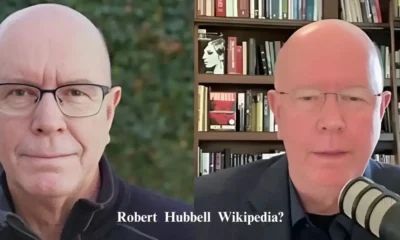
 GENERAL7 months ago
GENERAL7 months agoRobert Hubbell Wikipedia: What’s His 2025 Biography Guide?
-

 EDUCATION9 months ago
EDUCATION9 months agoJay Kuo Substack: Unpacking the Voice of Legal Insight
-

 GENERAL9 months ago
GENERAL9 months agoDream Cake: A Decadent Delight Worth Savoring
-
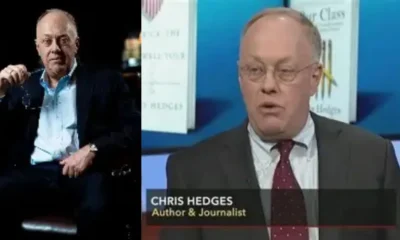
 GENERAL9 months ago
GENERAL9 months agoChris Hedges Substack: A Voice of Dissent in the Digital Age
-

 ENTERTAINMENT9 months ago
ENTERTAINMENT9 months agoTyler the Creator Dad Truth
-
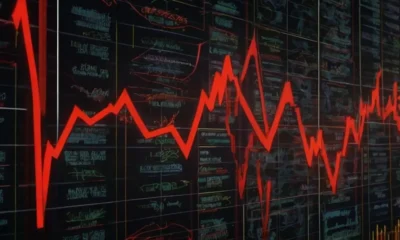
 EDUCATION9 months ago
EDUCATION9 months agoEconomic Blackout Results: The Financial Domino Effect
-

 TECHNOLOGY9 months ago
TECHNOLOGY9 months agoHow to Cancel Substack Subscription
-

 GENERAL9 months ago
GENERAL9 months agoMax Azzarello Substack: Inside the Mind of a Radical Truth-Seeker
